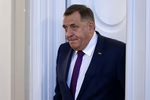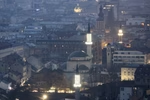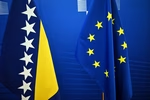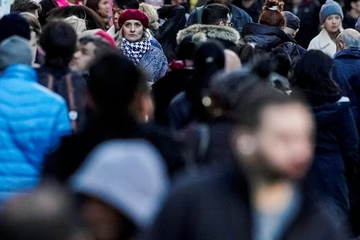Pettigrew for N1: Right to truth and memorialization must go beyond Srebrenica, to places where atrocities were committed

The 29th anniversary of the Srebrenica genocide was solemnly marked with a commemoration at the United Nations General Assembly in New York. Professor David Pettigrew, a professor of philosophy and Holocaust and genocide studies at Southern Connecticut State University and a member of the Board of Directors of the Genocide Studies Program at Yale University, spoke to N1 about the importance of remembrance culture and the significance of this commemoration.
Professor Pettigrew expressed his condolences to the families of the Srebrenica genocide victims, stating that his thoughts are with those who remember the victims.
The UN General Assembly recently adopted a resolution establishing July 11 as the International Day of Remembrance of the Srebrenica Genocide. Pettigrew stressed the historical significance of this Resolution, noting that it offers official support to the survivors. He highlighted the necessity of raising awareness about the genocide and fostering a culture of remembrance to counter denial. In this context, both the Resolution and the previous day's commemoration at the UN headquarters are of great importance.
Pettigrew specifically mentioned the speech by Almasa Salihovic at the UN commemoration, stressing the importance of survivors speaking the truth about what happened and the need for others to support them in this endeavour to ensure the truth reaches the widest possible audience. He believes that addressing this issue requires a long-term strategy involving education, establishing facts, promoting truth, and raising awareness.
Regarding the fight against genocide denial, particularly from certain politicians in neighbouring Serbia and the Republika Srpska entity in Bosnia and Herzegovina, Pettigrew underscored the critical role of the UN Resolution and the commemoration.
"The UN Resolution is crucial for this reason, as is yesterday's commemoration, to provide resistance against denial. There is a need for the Resolution to have its purpose and meaning, and for yesterday's commemoration to have significance, while the right to truth and memorialization must extend beyond Srebrenica to areas where atrocities were committed. Survivors must have the right to remember," he asserted, citing examples such as Kalinovik and Prijedor, towns in Republika Srpska where memorialization is currently not permitted.
Pettigrew explained that this is a process of changing the culture on the ground, suggesting that the Office of the High Representative (OHR) should initiate the removal of murals honouring Ratko Mladic in Kalinovik as part of this process.
When asked if this process is taking too long, considering the duration of similar processes in history, particularly after World War II, Pettigrew replied that it is difficult to compare historical processes but noted that clear steps are being taken by the international community and the High Representative to change the culture.
He praised the Srebrenica Memorial Center and the work of the High Representatives as a good model for how to proceed in other areas like Kalinovik and Prijedor.
Professor Pettigrew also commented on the recent 'All-Serb Assembly,' warning that the event carried a similar ideology to that of 'Greater Serbia.'
"It's important that the Office of the High Representative (OHR) and the US Embassy publicly condemn the goals of the 'All-Serbi Assembly.' Stronger actions, sanctions, and the use of the Bonn Powers are needed. When thinking about transitional justice analysis, it is possible to respond on a cultural level on the ground, calling for a change in the narrative, allowing for remembrance, and memorialization, and preventing the celebration of war criminals. There is a need for stronger sanctions and stronger condemnation of these actions," Pettigrew concluded.
Kakvo je tvoje mišljenje o ovome?
Učestvuj u diskusiji ili pročitaj komentare





 Srbija
Srbija
 Hrvatska
Hrvatska
 Slovenija
Slovenija



























































